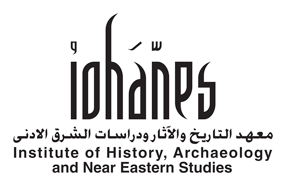Co-existence and Cooperation in Lebanon During the Civil War
This research project aims to shed light on cases of coexistence and cooperation in the Lebanese society during the civil war. These cases are currently unknown and marginalized due to internal divisions and ineffective political organizations. The new generations are completely unaware of them special with a media that is more interested in fueling sectarian animosities. This study will show the many areas in which the Lebanese resisted the war and continued to live in unity and harmony even during the fiercest episodes of fighting.
Individuals and organizations worked hard to combat violence, and to promote peace and coexistence among the different religious sects and combating factions. Cultural, social and even political initiatives emerged to try to put an end to the violence and to help individuals from all walks of life to overcome the social and economic difficulties that resulted from displacements.
This study does not aim to cover up the ugly face of war. It was because of war that these experiences in coexistence and cooperation emerged. The study used oral history and records from books, and journals. Students from the University of Balamand interviewed individuals who took part in this experience, either personally or through organizations or the civil society. The interviews included questions about their personal life during the war that they wished to talk about, their personal experience of instances of coexistence, and the sections of the society that took part in this experience. We tried, through these interviews to present a balanced representation of all the different social and religious groups of the society. We allocated 15 interviews for each Mouhafaza.
The study is supposed to conclude with a joint conference between the professors and the students in the Masters program to analyse the results. Unesco will participate in the publication of the works of the conference.
Individuals and organizations worked hard to combat violence, and to promote peace and coexistence among the different religious sects and combating factions. Cultural, social and even political initiatives emerged to try to put an end to the violence and to help individuals from all walks of life to overcome the social and economic difficulties that resulted from displacements.
This study does not aim to cover up the ugly face of war. It was because of war that these experiences in coexistence and cooperation emerged. The study used oral history and records from books, and journals. Students from the University of Balamand interviewed individuals who took part in this experience, either personally or through organizations or the civil society. The interviews included questions about their personal life during the war that they wished to talk about, their personal experience of instances of coexistence, and the sections of the society that took part in this experience. We tried, through these interviews to present a balanced representation of all the different social and religious groups of the society. We allocated 15 interviews for each Mouhafaza.
The study is supposed to conclude with a joint conference between the professors and the students in the Masters program to analyse the results. Unesco will participate in the publication of the works of the conference.
